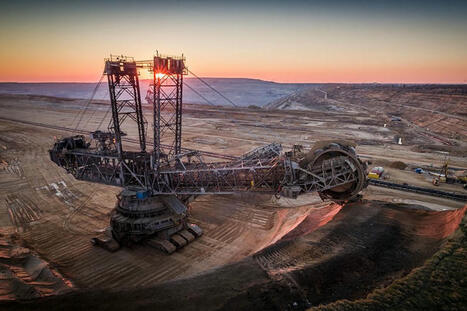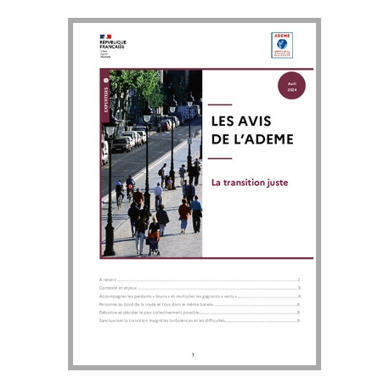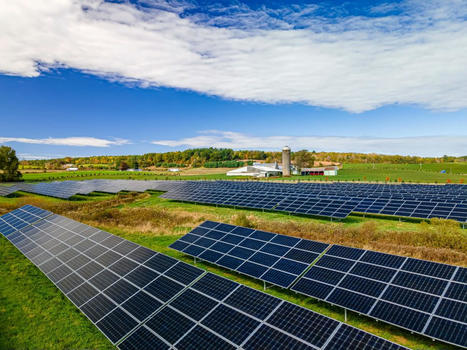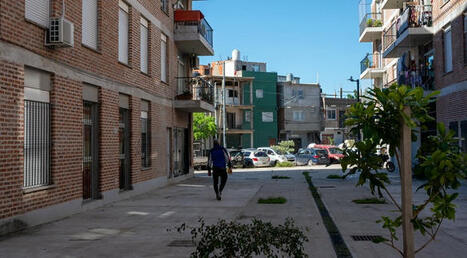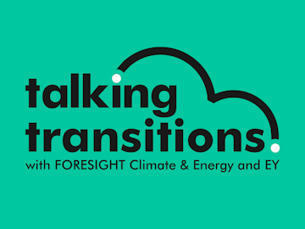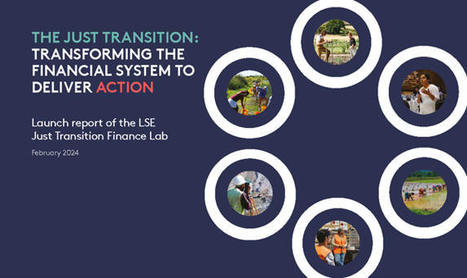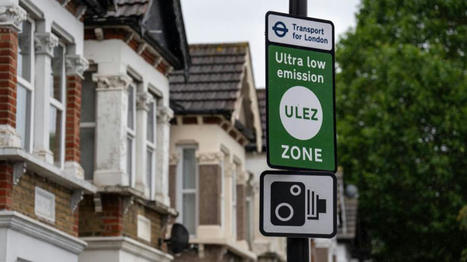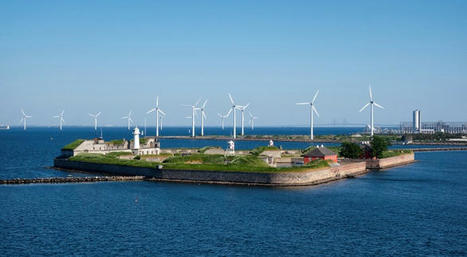 Your new post is loading...

|
Scooped by
Energy Cities
June 26, 4:10 AM
|
Retrouvez les propositions du Réseau Action Climat pour s'assurer que l’UE puisse financer et mettre en oeuvre les objectifs qu’elle s’est fixés sur le climat, la biodiversité et une transition socialement juste.

|
Scooped by
Energy Cities
June 6, 9:15 AM
|
The Wuppertal Institute undertakes research and develops models, strategies and instruments for transitions to a sustainable development. Its research focuses on the resources, climate and energy related challenges and their relation to economy and society

|
Scooped by
Energy Cities
May 28, 8:31 AM
|
Speaking during a debate in the Scottish Parliament, Martin said: “To deliver a just transition we must continue to work with communities, businesses, industry and the people of Scotland to plan for a future where Scotland is a leader in low-emission systems and technologies with all the jobs and the reduction in the cost of living that can come from that.

|
Scooped by
Energy Cities
March 7, 10:32 AM
|
Simulation game: Stakeholders from coal regions can experience complex transformation processes and test the effects of their decisions

|
Scooped by
Energy Cities
January 15, 5:53 AM
|
Stay informed on the global energy transition with FORESIGHT Climate & Energy. Get expert insights and the big picture of decarbonisation in just 15 minutes a day - hands-free and easy to fit into your daily routine.

|
Scooped by
Energy Cities
December 4, 2024 4:56 AM
|
The EU is pursuing a bold agenda to promote a fair, sustainable, and ambitious global energy transition, which leaves no one behind.

|
Scooped by
Energy Cities
September 16, 2024 2:53 AM
|
European cities’ commitments to achieving climate neutrality even ahead of the overall EU horizon of 2050 is truly inspiring, but as time progresses it occasionally comes to light that the reality proves tougher than well-meaning objectives.
That’s why the Austrian capital, Vienna, has decided to add an extra layer of commitment by making its climate-neutrality goal a legal mandate with the recent adoption of the Vienna Climate Act.

|
Scooped by
Energy Cities
July 30, 2024 2:43 AM
|
C'est un accord historique que viennent de trouver les pays du G20 pour renforcer la taxation des milliardaires au niveau international.

|
Scooped by
Energy Cities
April 22, 2024 5:21 AM
|
Il y a beaucoup plus à perdre qu'à gagner à l'inaction climatique en France et dans le monde. La notion de " transition juste ", inscrite au préambule de l'accord de Paris, ne dit pas autre chose. Il s'agit bien, en premier, de faire la transition car c'est un objectif d'intérêt général majeur, qui conditionne à terme, tous les autres.
La transition juste est une transition :
- qui accompagne la cessation ou la mutation des activités brunes et le développement des activités vertes …
- tout en tenant compte des vulnérabilités propres aux différentes composantes de nos sociétés et de nos économies.
- et qui soit élaborée le plus démocratiquement possible par l'ensemble des parties prenantes, dont les citoyens, les ONG, les syndicats, les entreprises et les collectivités, aux différentes échelles territoriales.

|
Scooped by
Energy Cities
February 21, 2024 9:45 AM
|
The COP28 text does not simply call for transitioning away from fossil fuels but rather stipulates that this transition must be “just, orderly, and equitable,” a much more challenging prospect.

|
Scooped by
Energy Cities
January 24, 2024 9:49 AM
|
Researchers argue that encouraging climate friendly behavior should focus on helping people overcome barriers to action—not just providing information.

|
Scooped by
Energy Cities
August 3, 2023 5:03 AM
|
Nature can play an important role in creating urban resilience in the face of climate change. Photo: nextbike/Unsplash There is no question that for the world to successfully slow and mitigate the effects of climate change, cities will need to transform. Currently, urban areas consume 78% of the world’s energy supply and produce over 60% of global greenhouse…

|
Scooped by
Energy Cities
March 23, 2023 10:45 AM
|
A just transition away from fossil fuels and to community-centered solar and wind energy is the way to deal with climate change
|

|
Scooped by
Energy Cities
June 19, 7:34 AM
|
Europe is warming up faster than any other continent and the most vulnerable people are bearing the brunt of climate impacts. A new report from the European Environment Agency (EEA), published today, shows that although the most vulnerable groups are disproportionately affected, they are often overlooked in climate adaptation planning and especially implementation.

|
Scooped by
Energy Cities
June 5, 6:44 AM
|
Through platforms like Good4Trust, a growing movement is demonstrating that solidarity, trust, and regeneration can replace profit and exploitation at the heart of economic life.
For listeners who might not be familiar with the term, what exactly is the prosumer economy?
The term “prosumer” is a portmanteau of “producer” and “consumer.” The idea is that nothing in nature is only a producer or only a consumer, everything is both. Humans, forests, fungi, economic entities, all are prosumers.

|
Scooped by
Energy Cities
March 21, 6:52 AM
|
Sufficiency has profound implications for public policy and societal values. Ensuring that everyone has access to high-quality housing, mobility, nutrition, leisure, education, healthcare, and other essential services directly fulfills the lower limit of the sufficiency corridors. Individuals deprived of these essential services are at risk of marginalization and are unlikely to lead fulfilling lives or participate fully in society.

|
Scooped by
Energy Cities
February 21, 4:30 AM
|
London’s journey to net zero must be an inclusive and fair ‘just transition’ – and that requires adapting and insulating in 2.2m homes. This report explores equitable uptake of retrofits.

|
Scooped by
Energy Cities
January 7, 11:42 AM
|
This report considers how justice is tackled in the policies which are currently in place to deliver the European Green Deal. It summarizes the lessons learnt for policy-makers seeking to achieve a fair green transition, by moving from the concept of justice to the practice of embedding fairness in the design and implementation of policies.

|
Scooped by
Energy Cities
October 1, 2024 7:58 AM
|
In the Rodrigo Bueno neighborhood of Buenos Aires, Argentina, new residential buildings are juxtaposed against older, self-built homes. By focusing on housing integration, urban connectivity and increasing socio-economic opportunities, upgrades to the neighborhood’s built environment increased energy efficiency and climate resilience while simultaneously increasing access and quality of life for residents. Photo: WRI The built…

|
Scooped by
Energy Cities
July 31, 2024 10:03 AM
|
The costs of climate measures are often perceived as disproportionately falling on vulnerable communities. Giulio Ferrini from the Institute for Human Rights and Business joins The Urban Report to discuss how we can fight climate change whilst addressing inequality.

|
Scooped by
Energy Cities
April 22, 2024 5:51 AM
|
In the first series of Talking Transitions, we looked at how the transition to a decarbonised economy is inherently several different and varied transitions that span across sectors, geographies and timelines.

|
Scooped by
Energy Cities
February 29, 2024 9:01 AM
|
What do we mean by a ‘just transition’ to a sustainable future? A European Environment Agency (EEA) briefing, published this week, looks into how a shift to a greener, climate-neutral, circular economy will impact our society and describes how policies must be informed by concepts of justice and fairness if they are to succeed. …

|
Scooped by
Energy Cities
February 21, 2024 7:26 AM
|
This report marks the launch of the Just Transition Finance Lab, outlining the urgency of the just transition, obstacles to progress and how the Lab will address these through four priority work areas in 2024.

|
Scooped by
Energy Cities
August 4, 2023 3:17 AM
|
A key element of “just transitions” to sustainability and climate resilience is ensuring that mitigation and adaptation measures do not adversely affect those least able to cope or afford to change their behaviour. Locally appropriate public policy interventions are required in each case to bridge such gaps and, in the words of the UN’s Agenda 2030, “leave no one behind”.

|
Scooped by
Energy Cities
August 3, 2023 5:02 AM
|
Denmark's success in transitioning its power sector to renewables has positioned it as a global leader in wind energy. Photo: whitemay/iStock To date, over 90 countries have set net-zero emissions targets, committing to help prevent the most harmful impacts from climate change. But questions remain around the credibility of many of these pledges and whether these goals will be met. Together, countries…
|
 Your new post is loading...
Your new post is loading...






